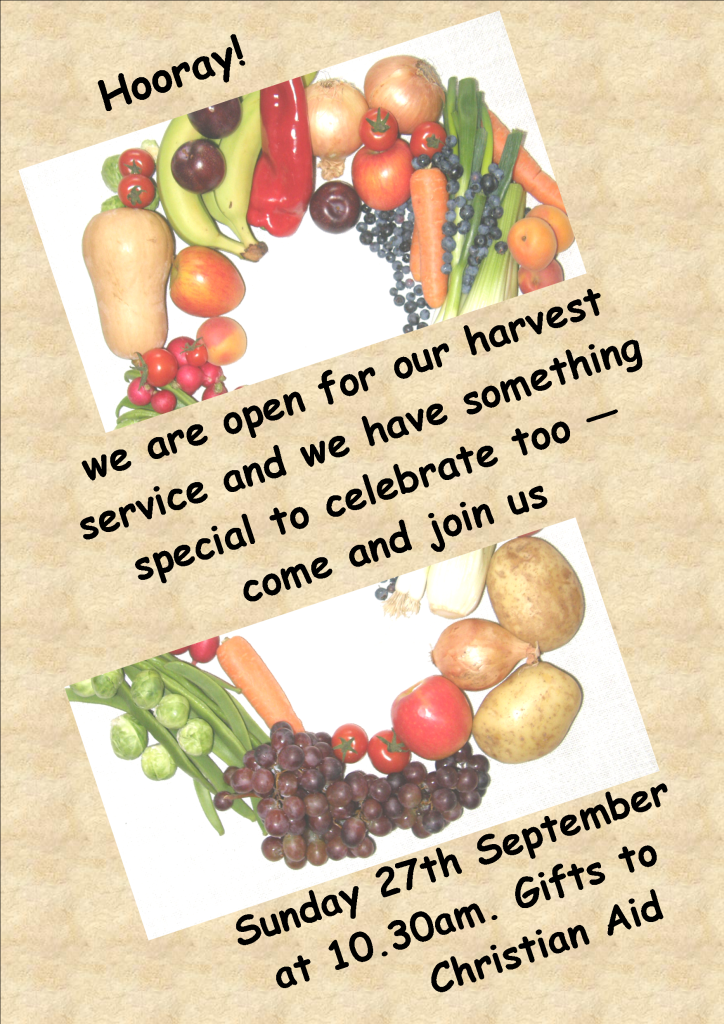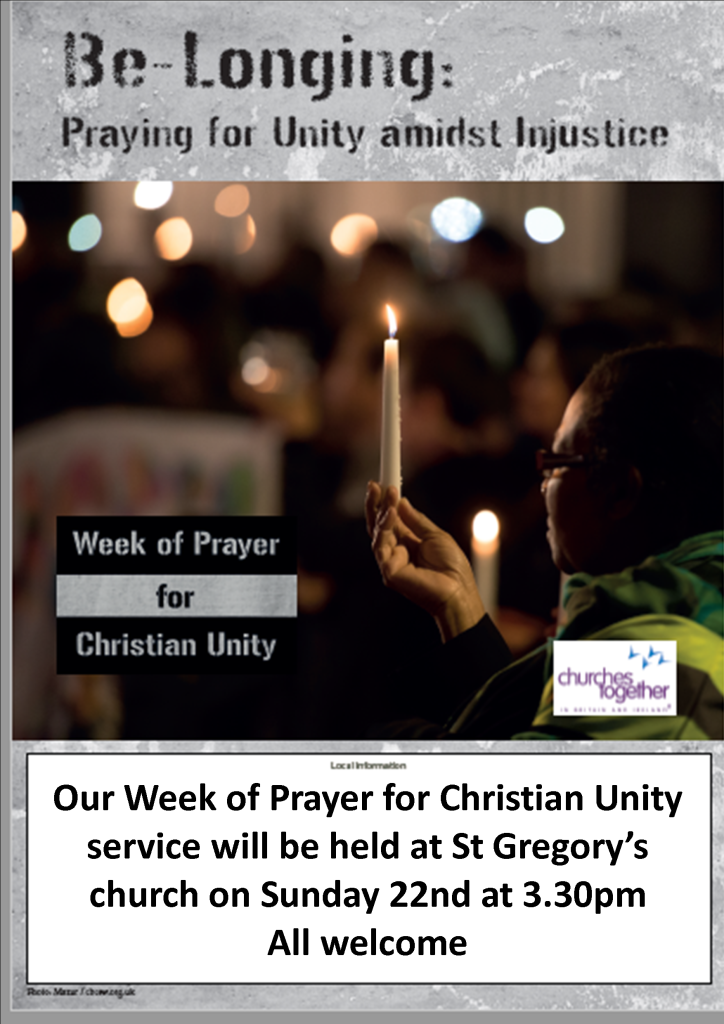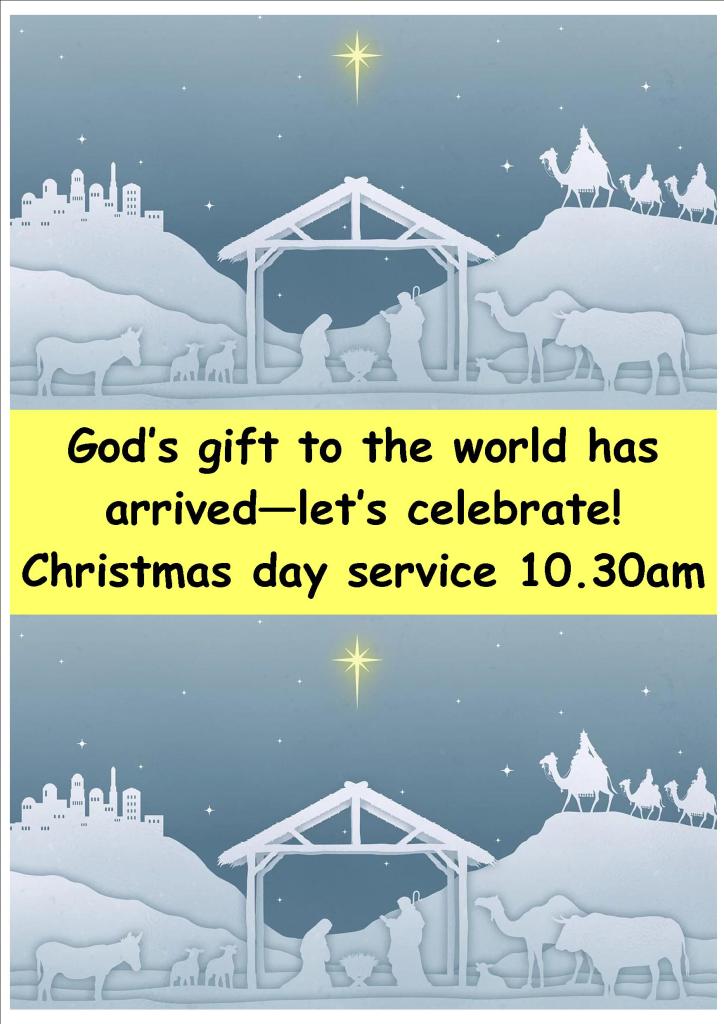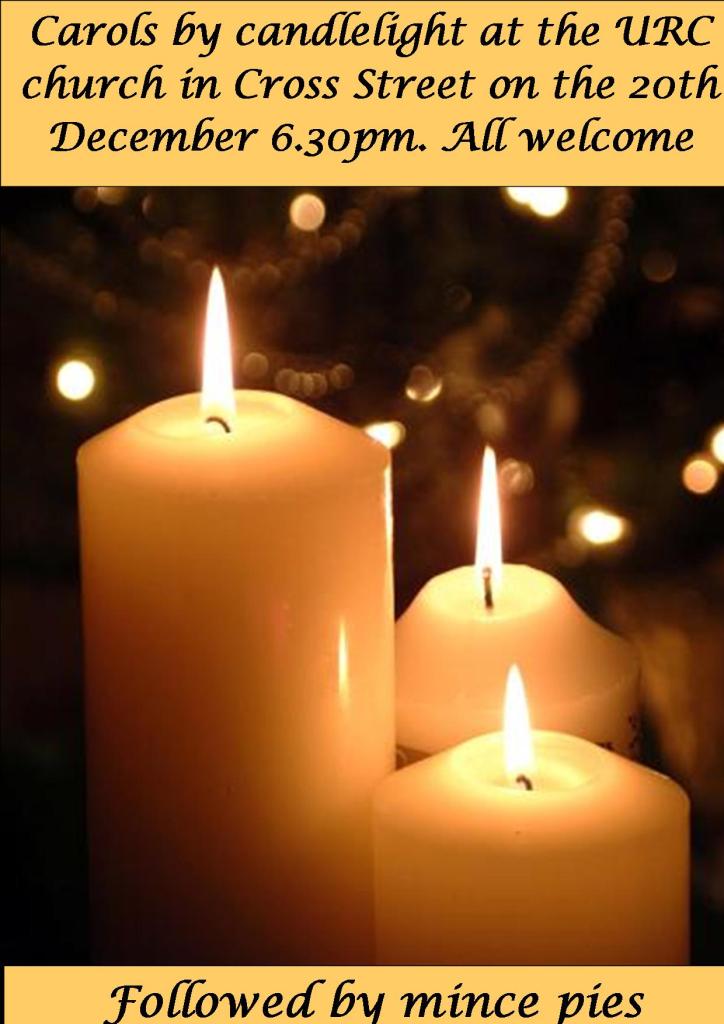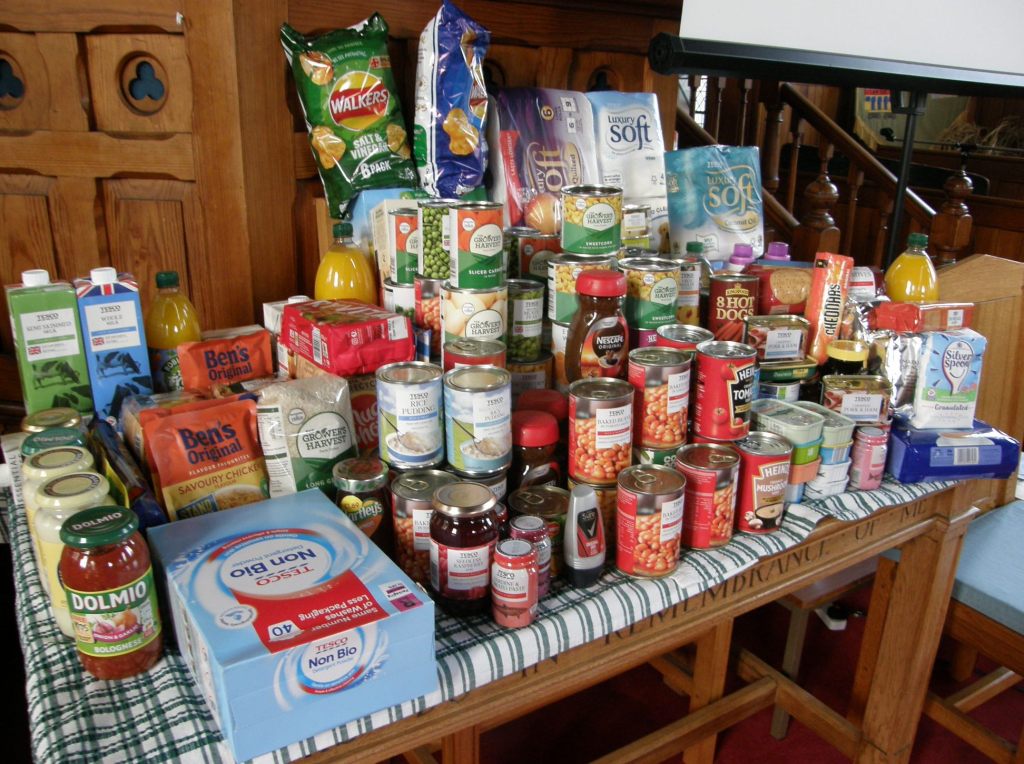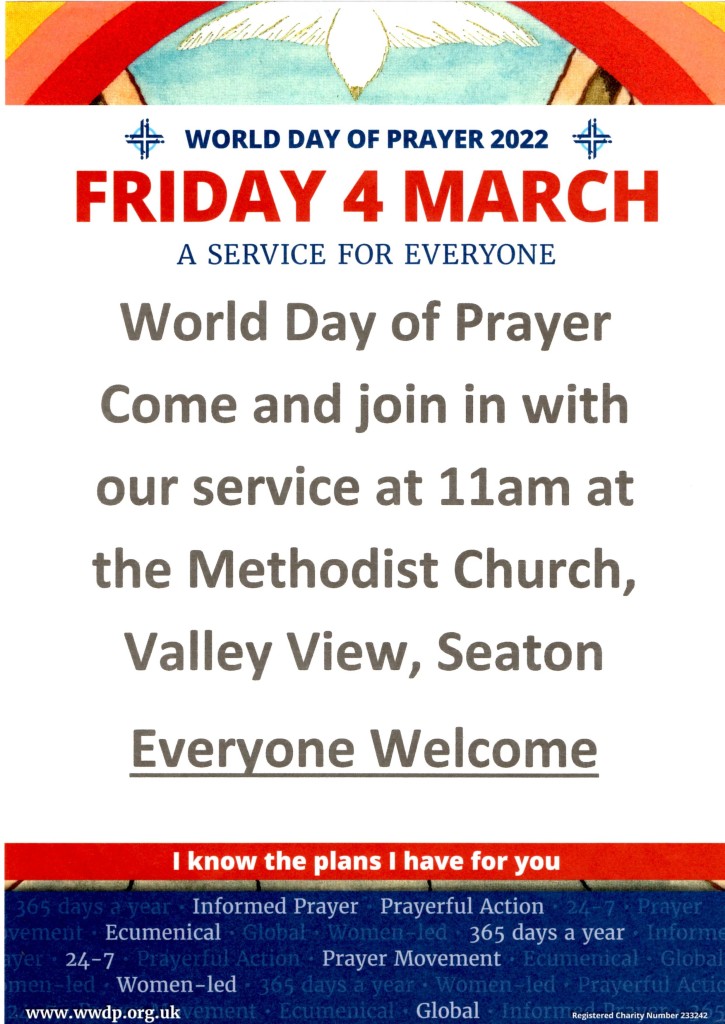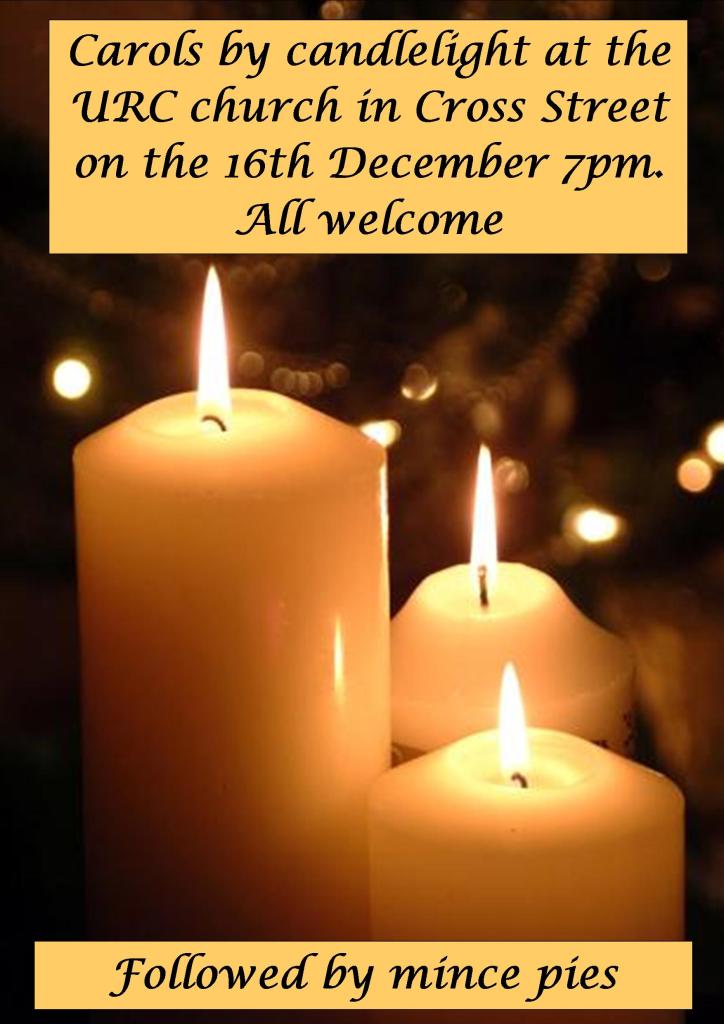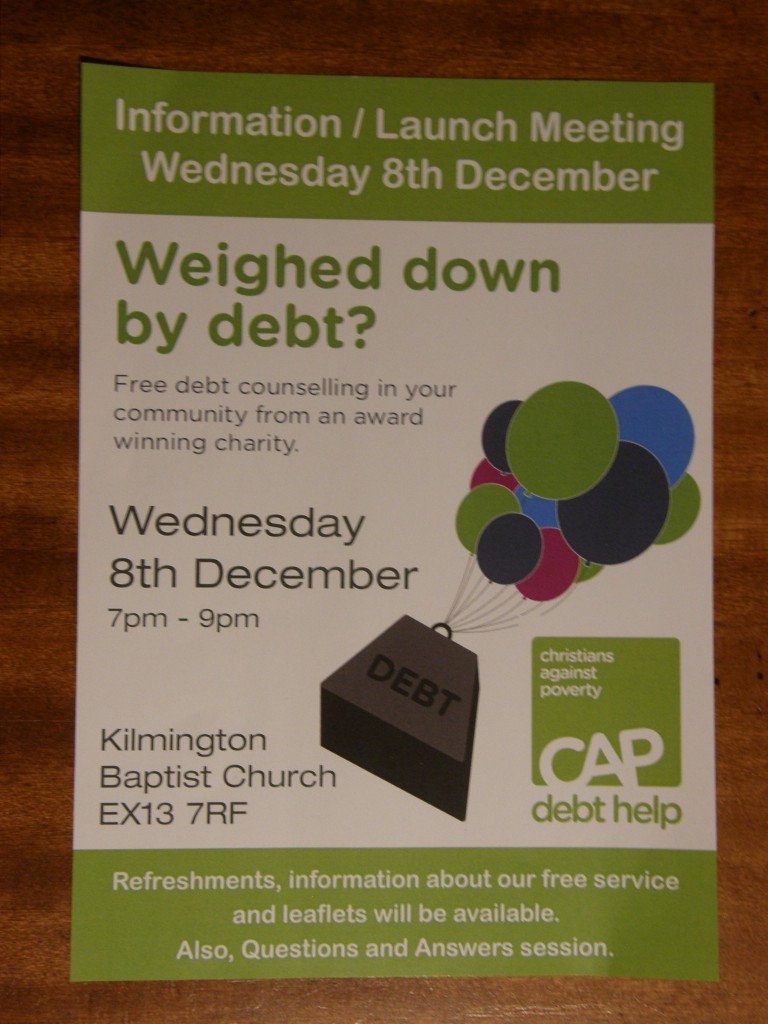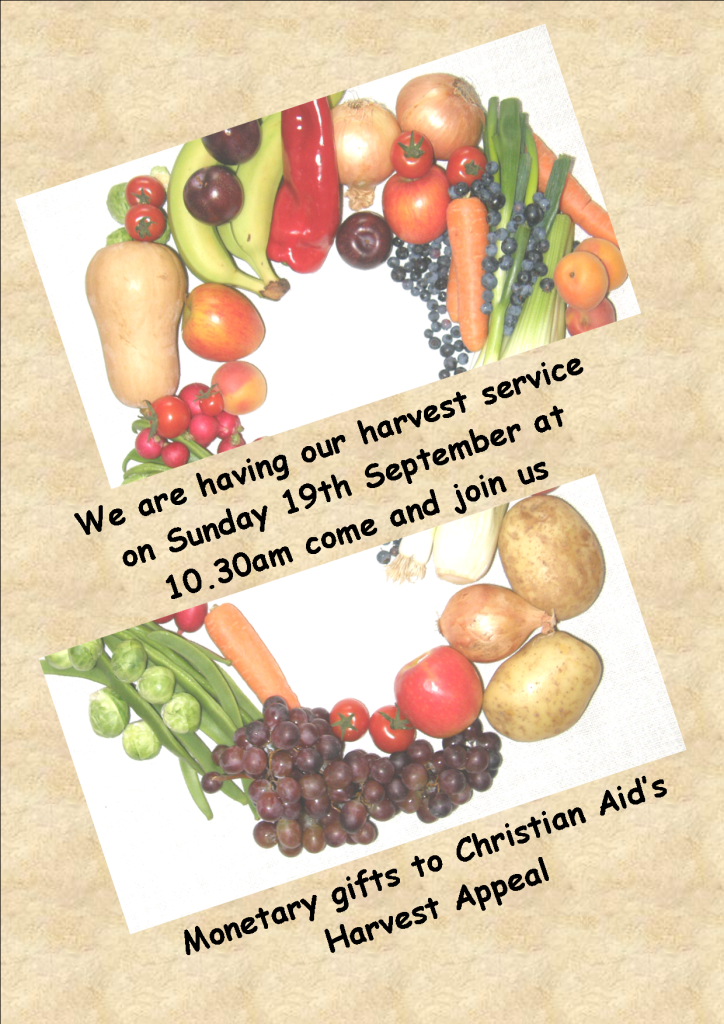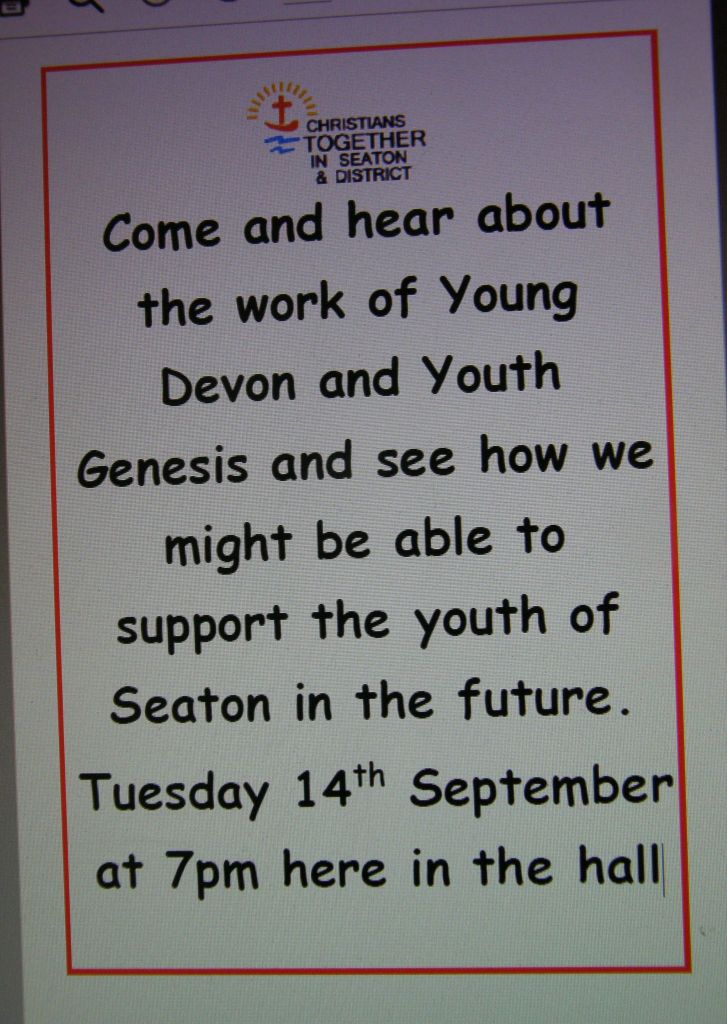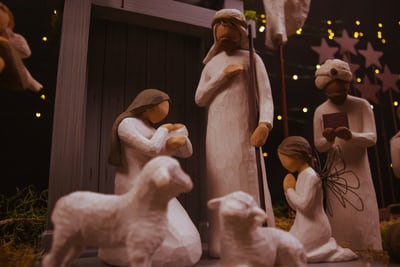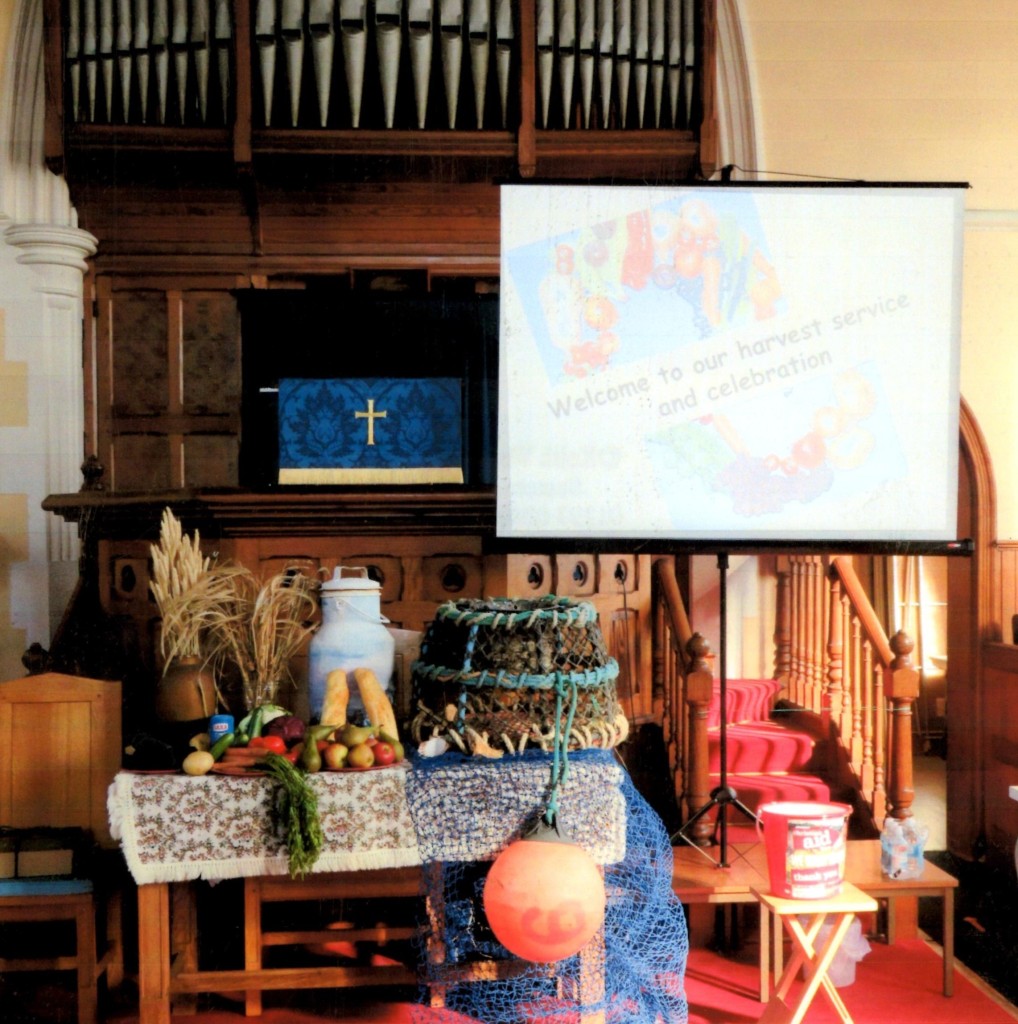
Give a little love for Christmas
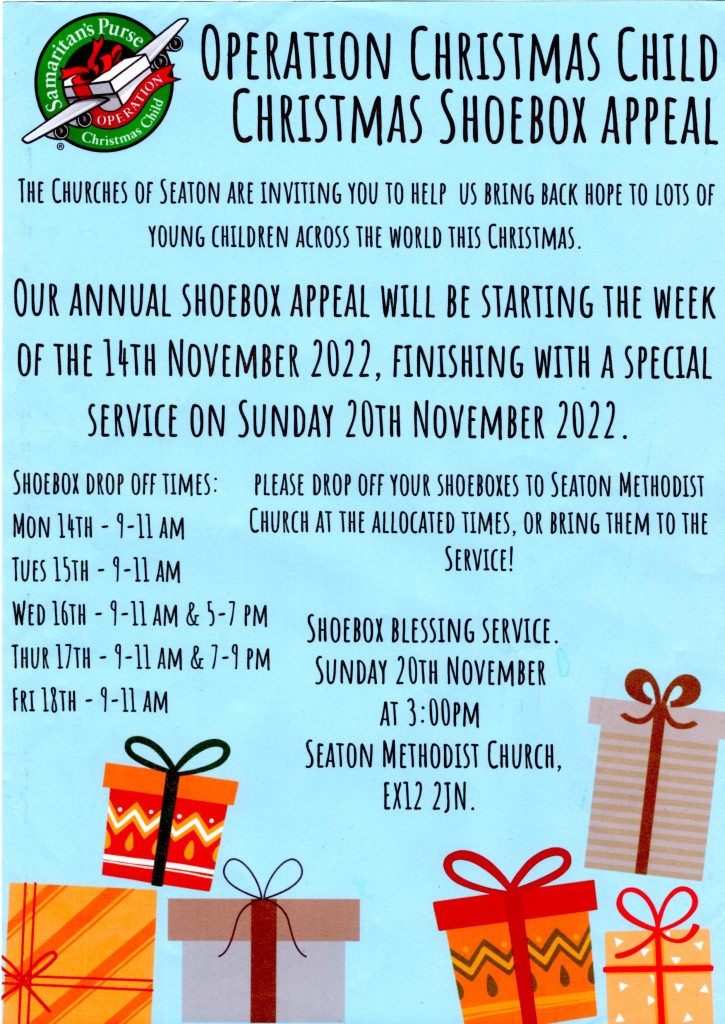
Would you like to give a gift but can’t fill a whole shoe box? Please bring any items to Seaton URC on Wednesday 9th between 10 and 11.30am or Sunday 13th between 9.30am and 12 midday. Below are some ideas for gifts and some guidelines to follow.
Samaritans Purse Operation Christmas Child Shoebox Appeal
All items for shoe boxes should be new please.
Boxes are packed for a boy or girl, in these age ranges, 2-4yrs, 5-9yrs or 10-14 yrs.
TOYS – A deflated football and pump, cuddly toys, dolls, toy cars, lorries, boats, yo-yos, small puzzles, doll, soft animal or toy, small musical instrument (such as a harmonica or recorder), small foam football or tennis ball, finger puppets, Slinky, interactive toys that include push buttons, lights, noise (include extra batteries please), skipping rope, Play-doh (you could add plastic cookie cutters), plastic toy figures, plastic tools, Kaleidoscope, picture snap cards.
SCHOOL SUPPLIES – Pens, pencils & manual sharpeners, crayons or felt pens, stamps & ink pad sets, writing pads or notebooks, solar calculators, colouring & picture books, ruler, eraser, coloured pencils, pencil case, colouring pads, glue stick (not liquid glue), small adhesive tape, watercolour paint set (finger paint palette, paint brushes, paper), pre-inked stamper set, geometry set, chalkboard and chalks, children’s scissors.
HYGIENE ITEMS – Toothbrush, bars of wrapped soap, comb or hairbrush, flannel. Reusable plastic containers: cup, water bottle, plate, bowl, blunt-edged utensils (Consider filling an empty container with non-liquid items such as hair bows, bracelets, sunglasses, or flannel to make use of the space), deodorant stick, solid lip balm stick.
OTHER ITEMS – Hat, baseball cap, gloves, scarf, sunglasses, socks, T-shirt, flip-flops, hair accessories, jewellery set, watch, torch either wind up or with extra batteries, scarf/mittens, small bag/purse, hair bows or clips, friendship bracelets (woven with yarn or embroidery thread), make-it-yourself craft items or kit, binoculars, personal note/card and photo of you/your family, colourful ball of string, small sewing kit, small drawstring bag, magnet, compass.
Do include a personal note if you can and maybe a photo of yourself, your child will no doubt treasure seeing the donor.
DO NOT INCLUDE – Toothpaste, sweets, lotions and liquids; used or damaged items; war-related items; seeds, gum, chocolate or food items; religious or political literature; medicines, aerosol cans, sharp or fragile items or ordinary playing cards.
Any items packed from this list will have to be removed from shoe boxes. Sorry.
Harvest Service 25th September @ 10.30am
Do come and join us at our Harvest service. We will gladly accept tins and dried food for our local Foodbank and any cash offering will be sent to the DEC Pakistan Floods Appeal. We want to help folk at home and abroad this year.
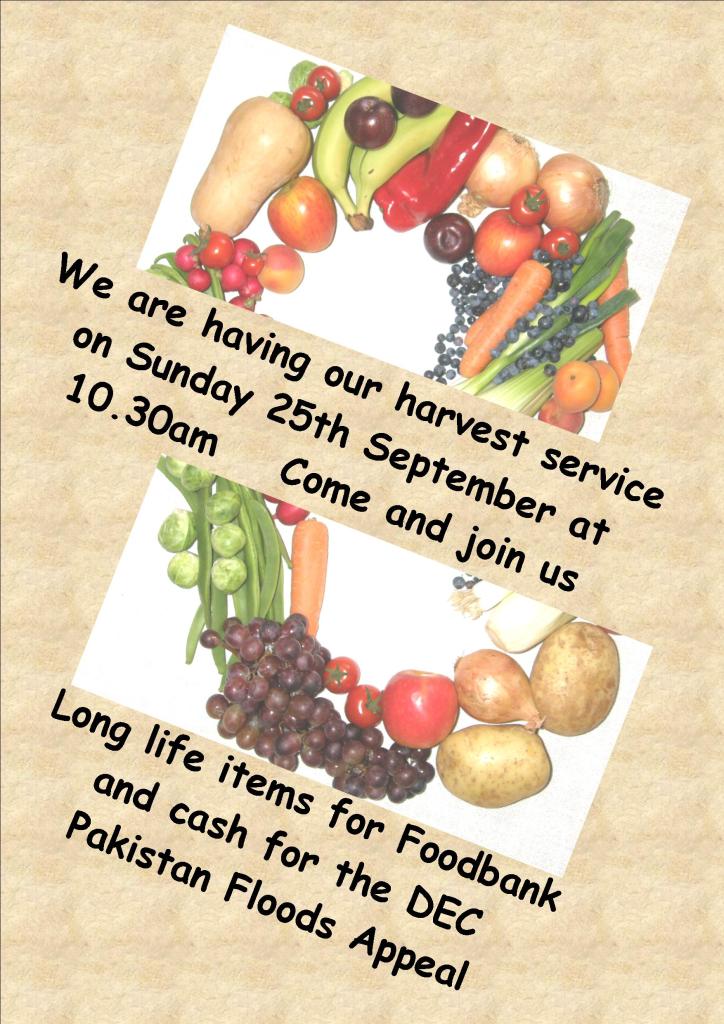
Foodbank Needs
Tins of meat for hot meals (meatballs, stew, hot dogs and chicken in sauce), Tins of meat for cold meals (corned beef, spam, bacon grill, ham), Tinned vegetables (Carrots, peas, sweetcorn, potatoes), Bags of rice and savoury rice, Sugar (500g bags if possible), Coffee (100g), Sponge puddings (tinned or long life), Rice pudding (tinned), Tinned fish (tuna, sardines), Tinned fruit (peaches, pears, apricots, pineapple, mandarins, fruit cocktail), Jams / Marmite, Meat or fish paste in jars, Sweet biscuits and savoury crackers, Squash, Milk (long life or powdered), Washing powder (small size), pods, liquid, Washing up liquid, Toilet rolls, Shampoo, liquid soap, deodorant.
NO ”Stockwell” items, pasta, baked beans, fresh food, home preserves, open packets or out of date food stuffs. Thank you
Happy New Year 2022
Our verse for the year is Joshua chapter 1 v 9
“Have I not commanded you? Be strong and courageous. Do not be terrified; do not be discouraged, for the Lord your God will be with you wherever you go.”
Take heed of God’s command to be strong and courageous, not in your strength, but His.
Take hold of His promise to you. that He will be with you wherever you go.
May God’s blessing be on you in 2022
Sunday services are in full swing
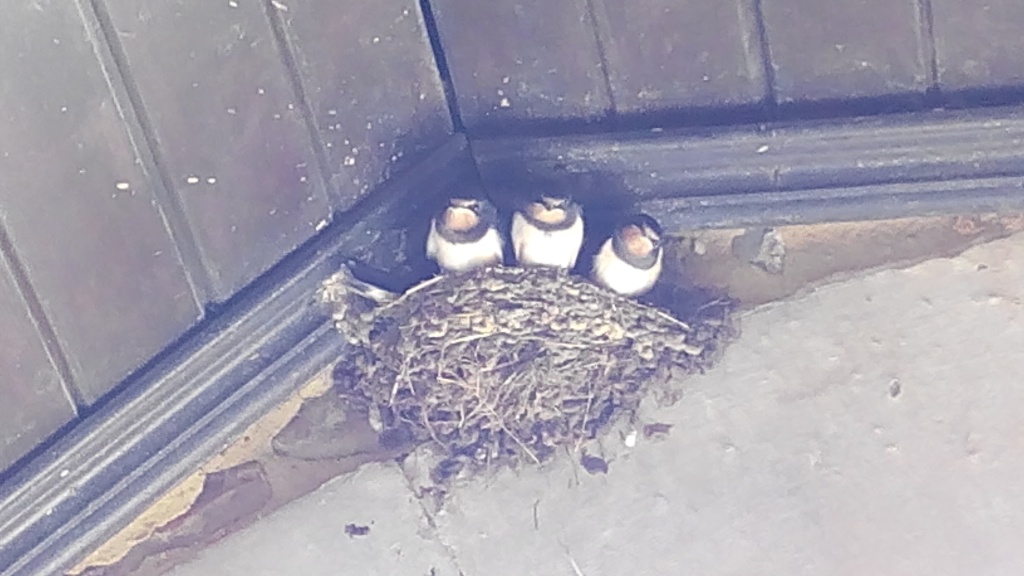
For the first time, this year a pair of swallows decided to set up home in our porch. One parent even came in and had a look round the sanctuary early on. On Tuesday this week the young ones fledged and we just managed a quick snap before they left the nest. I see that they are back each evening for some home comforts before their final flight abroad.
Sunday Thoughts 25th April
Sunday Thoughts April 25th

| From treesacrowd.fm |
“You can’t judge a book by its cover” they say. Well, the lady in the picture has strong and pleasing features – perhaps she is a model …. or an actress or something else?
Actually, her name is Amanda Owen and she is a shepherdess. She has shared her life as a shepherdess on one of Britain’s most remote hill farms, with the public via Channel 5’s programme “Our Yorkshire Farm”.
Today we are looking at the role of a shepherd, please read John 10 v11-18.
In our reading today, Jesus contrasts the person called to care (the good shepherd) with someone who does a job for money, and cares more for himself than his flock (the hired hand). What is the fundamental difference causing the behaviour of each person with the flock of sheep? I suggest that it is all about relationship. The hired hand does not really know the sheep and therefore does not know them individually, or know their needs. But the good shepherd, the one called to care, recognises the sheep individually, knows their habits, wants the best for them and so leads them to good pasture, to water, protects them from wild animals and thieves, even to the point of giving up his own life to defend them. He stays with them whatever the weather and rescues them when they get in difficulty. It takes time and effort to get to know the sheep and in turn the sheep recognise the shepherd’s voice and trust him to lead and care for them.
Jesus is our shepherd, but He can only really care for us if we are in relationship with Him and trust Him completely. Do you?
Have another look at v16. What do you think “other sheep” means?
Sometimes, we are brought up in one denomination or another and begin to believe that we are the privileged ones and are ‘right’ and others are ‘wrong’. However Jesus shows us in this verse that anyone who is in relationship with Him, regardless of their colour, cultural background, denominational label etc is part of His flock and we must accept them and love them as He does.
Psalm 23 also uses this imagery of a shepherd. Over this week, read that psalm again. See if you can write your own, perhaps short version of Psalm 23, which reflects on your relationship with and experience of God.
Sunday Thoughts 18th April
Pause for thought – Can you recall times when you have struggled as a Christian with the experiences you were facing or are facing right now? Jot down one or two and come back to them later.
Our passage today is Luke 24 v36-48. Take your time in reading it before moving on.
The disciples and other followers were gathered together in Jerusalem. They were listening intently to the testimony of the two disciples who had met Jesus on their way to Emmaus. The two shared how they had been joined by Jesus – though they had not recognised him at the time; and how He explained about the resurrection being the fulfilment of the Scriptures.
It was while the whole group were sharing together that Jesus appeared amongst them and blessed them with peace. They were startled, frightened and full of doubt – a whole mixture of emotions. This surely is no different from our situation in the 21st century. The answer is the same today as it was for the early disciples. It is His presence that we need to seek and acknowledge He is never far away from us and always ready to respond. “Does He really care?” you may ask. Look again at the scars he bears, the evidence of His love for me and you. He showed the disciples His hands and feet to help them believe that He was alive again and even ate some food in front of them to convince them too. Their fears turned to joy and amazement, even though they still had some doubts.
What does He do when we seek Him in the midst of our need? He helps us to open our minds and hearts to the Scriptures, just as he did with His disciples in v45. Why? – because they hold all the promises of God and the confirmation we need to help us stand firm with confidence in our faith, because they are the “Living words of God”. What else will he do? Look again at the passage and in particular v49. Jesus promised His disciples that they would receive “power from on high”. He was referring to the Holy Spirit, who was given to all believers from Pentecost onwards. Today, the Holy Spirit is available to us too and He longs to work with us, so that we can fulfil God’s plan and purpose for each and every one of our lives.
Now pause and take some time to seek God’s presence and hand over to Him those memories of past struggles or the emotions of present ones. Let Him give you His peace, let Him open your minds and heart to His word and let Him clothe you with power through the Holy Spirit to strengthen you in your journey of life.
Terry Talbot
Sunday Thoughts April 11th
The passage today is John 20 v19-31
At a time when we are faced with “fake news” and “my truth”, what lengths do we go to, to find out what is really true?
The apostle in this passage is often characterised, (rather unfairly in my view) as ‘doubting Thomas’. What do we actually know about him? He is shown as a loyal and courageous follower of Jesus “let us also go that we may die with him” (John 11 v16). He was not afraid to stand out and ask awkward questions, “Lord we don’t know where you are going, so how can we know the way?” Jesus answered, “I am the way and the truth and the life. No one comes to the Father except through me”. (John 14:5-6).
For reflection – How easy or how difficult do you find it to ask the awkward question of those in authority? Or do you just ‘go with the flow’?
Why was Thomas not with the other disciples on the evening of Easter Sunday? We don’t know, perhaps Thomas was feeling so disheartened that he wanted to be alone; but the others were all together behind locked doors and Thomas missed out, both on meeting Jesus and receiving the gift of peace that he gave to his disciples.
When the others told Thomas that they had seen the Lord, he refused to believe them. In some ways his response was surprising, but the resurrection of Jesus was such a staggering and unprecedented event, that perhaps his lack of belief was not so strange.
Anyway, Thomas said to the other disciples that he wanted visible, tangible evidence in order to believe that Jesus was alive. Read v25 again. Without that evidence he felt that he would not believe what he was being told.
A week later, Jesus appeared to the disciples again, this time Thomas was among the group. It is worth noting that Jesus did not reprimand Thomas for his lack of belief, though He knew what Thomas had said. Instead He offered Thomas the opportunity to touch Him and know for himself. There is no indication that Thomas did that, but he must have seen the nail marks on Jesus’ hands and wounded side and Jesus spoke firmly to him, “stop doubting and believe” (v27). Thomas’ response was probably the first recorded affirmation of who Jesus was (and is) “My Lord and my God”.
Today, doubt can be part of our Christian experience too and we should not be afraid to express it. Sometimes our doubts can fade away by further study of the Bible, perhaps with the help of commentaries; or through prayer or with the help and support of more mature Christians. One thing is for sure; it is a very real experience that can happen to any Christian and one which should not be hidden.
Pause and consider if you have had doubts in the past or are struggling with issues now. Own them and share them with someone you trust.
Geoff Powell
Easter Sunday Thoughts 4th April
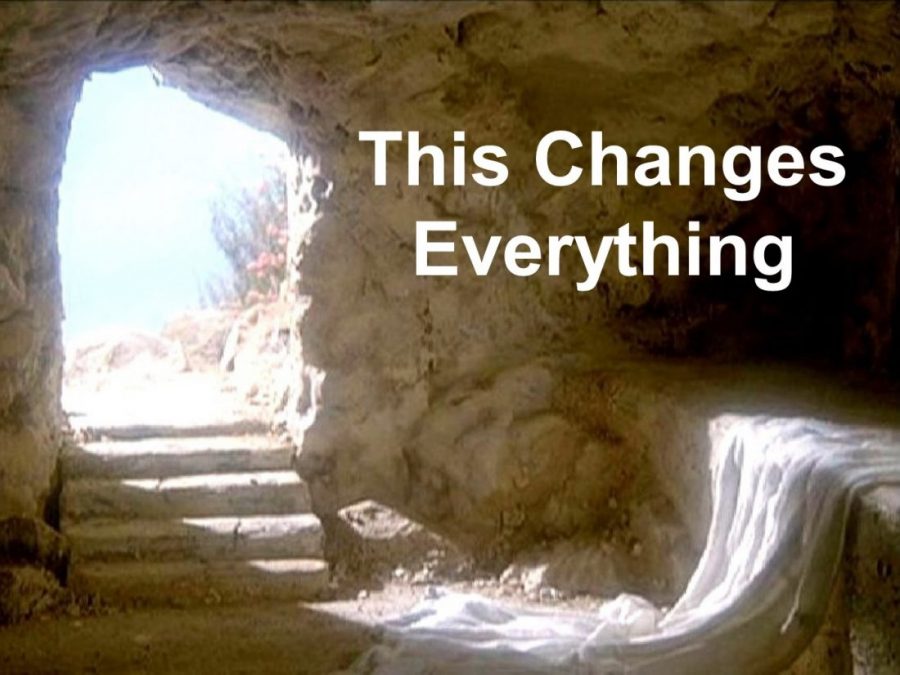
Please read John 20 v11-18
Take your time to read the passage and write down the things that stand out to you.
From grief to joy
Mary loved her Lord and came to the burial tomb to continue mourning his death, overwhelmed with grief and lamenting the One who had died and she was not afraid of expressing her deep sorrow. She found the heavy stone rolled away; imagine her reaction, the panic in her voice, perhaps her fear and dismay. She looked, she searched, she stood and watched; she assumed that Jesus’ body had been removed, maybe stolen. Imagine her desperation at finding the tomb empty, the body gone. Her weeping reflected her perplexity; Mary’s tears told a story, one full of sorrow. Jesus too had not been afraid of expressing his emotions through tears. (John 11 v35)
Question – How do you express sorrow? Do tears flow easily? There is nothing wrong about tears for men or women; they can be a sign of being emotionally healthy.
In her state of anguish, Mary became aware of someone in the garden but she did not recognise him through her tears. ‘Tell me about your tears’, Mary was asked by the angels (v13) and by the risen Jesus (v15). And then in that moment of intimacy as He called her by name, “Mary”, she recognised the gentle tones of His voice. For each of us our name is important and when it is used sensitively it invites us to listen more intently. Suddenly, Jesus had Mary’s full attention. Imagine the change of her emotion into joy as she realised that Jesus was alive, and filled with amazement she ran to find the disciples and share her story and the good news.
Something happened that night, the tomb was empty, waiting to be discovered, yet that first experience of resurrection began with loss and emptiness. There had to be a turning point. For Mary it came in v14 as she turned towards Jesus and away from the empty tomb, and faith came to her as a gift in that moment of helplessness. Jesus revealed himself then and he is ever present now, even without our recognition, for He is the “I am”, whether seen or unseen.
Like Mary we have only one journey to make, a journey that looks at the face of death and finds it empty and so turning we find life in all its fullness. We are called to bow the knee, to humble ourselves and turn to Christ and in that moment of turning He calls us by name.
For reflection – Imagine that you, like Mary, are standing in the garden, facing the empty tomb. It is Easter day. The risen Jesus is standing behind you. You might like to make this your response of faith: ‘I turn to Christ.’
John Carter
(Note that some of these thoughts are drawn from David Runcorn, Dust & Glory, p162-3)
Sunday Thoughts 28th March
Please Read Mark 11 v1-11 Palm Sunday
It was Passover. One of the three most important festivals in the Jewish calendar and it celebrated the ‘passing over’ of the angel of death, protecting the first born children of the Israelites from death on the eve of their escape from Egypt and the slavery that they had endured for years. (see Exodus chapter 12). So it was a very special festival (and still is today), a time of excitement, of national fervour and every Jewish pilgrim from the then known world would seek to celebrate the festival by going to the holiest of buildings and cities at that time – the Temple in Jerusalem. That meant that the population of Jerusalem swelled to several times its normal size, with every inn at full capacity and every local household bulging with extended family. Very exciting for the festival goers, but as far as the Romans were concerned it had the potential for trouble and soldiers would have been on the alert.
Jesus and his disciples had been in Jericho and were now nearing Jerusalem from the eastern side, known as the Mount of Olives (for olive trees grew there then) and were nearing two villages Bethany (‘house of dates’) and Bethphage (‘house of figs’), which was less than a mile or a ’Sabbath’s walk’ from the city.
Up to this point, all through his time of teaching the disciples, preaching, healing and engaging with the Pharisees, Jesus had never sought to make a public spectacle, it just wasn’t the right time, but now was the right time at last and he was also about to demonstrate the fulfilling of scripture before everyone’s eyes.
So Jesus sent his disciples to fetch a donkey (‘colt’ in this account). No doubt he had pre arranged to hire the animal on a previous visit to the city. The importance here is that it was a young donkey that had not yet been ridden. Such animals were kept for special or sacred events. We might think of a donkey as a humble beast, but not so then. We can read in 1 Kings 1v33 that it was an animal fit for a king to ride on, when he came in peace. The disciples were indeed challenged as Jesus had suggested might happen, but their answer satisfied the owners. Then we read of the disciples throwing their cloaks on to the donkey, to make it more comfortable – maybe; to make it more fitting as for a king – certainly.
Most pilgrims arriving in the city would have been on foot, so Jesus would have been very noticeable as he rode through the streets, fulfilling scripture ‘Lo your king comes to you (Jerusalem); triumphant and victorious is he, humble and riding on a donkey’. (Zechariah 9 v9, scripture written some 600 years earlier). Jesus’ action was demonstrating that he was indeed a king, but not the sort who would overthrow the Romans by engaging in warfare, but by peaceful means.
So, the Passover festival was a great time of celebration and as Jesus rode through the streets, excited people laid down palm branches on the path that they had cut from the fields outside the city. Others threw down their cloaks (or coats). This was not done lightly as cloaks were an asset and yet v8 says “many people” did this and were caught up in the excitement of welcoming the servant king in to the city. Others, both behind and ahead of Jesus, shouted out “Hosanna” (meaning ‘save us’) a cry to God for him to rescue them, but it had also become a shout of praise and adoration (from Psalm 118 v25-26). You might like to read aloud the greetings from v9 and 10.
Read the whole passage again. Imagine that you were there, perhaps in the crowd or leaning out of a window watching all that was going on. What do you think you would have said or done on that very first Palm Sunday?
That day was a time of extravagant generosity towards Jesus. Today, how could you be generous towards Jesus?
Sadly the celebration was short lived, for pain and sadness was on the horizon, as Jesus entered the last week of his life.
Sue Carter
Sunday Thoughts 21st March
Please read John 12 v 20-33
There is much in these verses. What particularly stands out for you?
V20-22 It is interesting that some Greeks who were probably gentiles (non Jews) had joined Jewish pilgrims going to Jerusalem to celebrate the Passover (a seven day festival). Greeks were known for their inquisitive nature and travelling around Europe to learn new things. (As gentiles they would only have been able to enter the outer courts of the temple.) They approached Philip (probably because he had a Greek name) with a request, “Sir, we would like to see Jesus”. Perhaps they had witnessed Jesus’ entry into Jerusalem on a donkey and now they wanted to meet Jesus personally. Philip might have been unsure about the request so he sought out Andrew who was also from Bethsaida, and together they told Jesus about the Greek’s request.
V23-24 There is no indication that Jesus met with the Greeks. Instead he announced openly that the hour had come for him to be glorified. His listeners might have thought that he was talking about the glory that is human triumph, but he was actually talking about his forthcoming crucifixion. It must have been bewildering when Jesus went on to use a horticultural metaphor to illustrate the outcome of his own death. That only through his death could there be life for others. The fact is that over the past two thousand years many seeds have been sown in people’s lives which have produced much fruit. This springtime many of us will see seedlings appear or be planting seeds, which we hope will bear fruit in the future. But this has only been possible by the original seeds ‘dying’ first.
V25-26 As so often with Jesus’ teaching, he used exaggeration to make an important point about what it meant to follow him. When he said “whoever hates their life”, he was not using hate in the way we use it today, but rather saying that it is important to put him first and then everything else will fall into place. Every believer is called to serve Jesus, which at times may be very costly, but Jesus said that his heavenly father would honour in heaven all those who do so.
Question: How can you follow Jesus’ example?
V27-30 In these verses we catch a glimpse of the cost to Jesus and the inner battle of emotions and will, as he prepared to surrender his life on the cross. Yet his desire was to carry out his father’s will, so a voice from heaven (witnessed by many) encouraged him as he began the final chapter of his life. Perhaps those who opposed Jesus heard the voice as thunder, while those who believed in him heard the voice as an angel’s….
Question: Can you think of other occasions when a voice from heaven affirmed Jesus?
V31-33 Jesus spoke about the prince of this world being driven out.
Question: Who do you think he was referring to?
Jesus then described the manner of his death and resurrection, which would open up the way for all Jews and Gentiles to be drawn to him. There would no longer be any barriers to keep men, women or children from knowing him personally.
Question: Do you know him personally or is he just a character from history?
Geoff Powell
Sunday Thoughts 14th March
Ephesians 2: 1-10
Today’s reading from Paul starts with a stark picture of a life lived separate from Christ: ‘You were dead through trespasses and sins in which you once lived…’ v2 and it is easy to feel that we are all a bit useless and wretched so what is the point of trying? and that has been many peoples experience of having a quick glance at the bible in the hope of inspiration and stumbling upon a passage that makes them feel even worse- oh dear- that is not good news to anyone! It is important when we are reading anything in the bible to sit with the words for a good length of time and let them sink into your soul. One very old way of approaching the scriptures is called Lectio Divina ((Divine Reading) and it is a way of meditating on a specific passage and allowing God to speak to you. To study the bible in this way just find a quiet spot and follow along:
- Read through the passage from Ephesians.
- Read through it a second time, slowing your pace, remembering to breathe.
- As you read it for a third time ask the Holy Spirit to come and illuminate something for you; what do you notice that stands out? It can be a word or a phrase or a feeling.
- Meditate on what your mind has been drawn to, by sitting quietly, pausing, and focusing your thoughts.
- Pray to God (start a conversation) about what is on your mind/ in your heart right now.
- As you sit begin to contemplate what this passage might mean to you.
- Consider what action God might be prompting you to do as a follow-on exercise in your life or community.
A short video clip on this way of approaching the bible can be found by following the link below:
The thing that leaps out at me in this passage is that we are all in it together! There is no one who has not made mistakes or done things they regret; indeed, it is whilst we are still very much in this way of living that Christ turns up, so full of love for us that he draws us to himself. God is not waiting for us to be the finished article (thank goodness) but rather he is longing for us to simply commit to the journey: ‘…even when we were dead through our trespasses, made us alive together with Christ’…v5. I often wonder how I will ever learn to stop doing things in my own strength, and verse 8 reminds me that I am saved not through my own doing but through God’s grace- Hallelujah! so I don’t need to find solutions on my own.
- What burden are you carrying today that you can allow God to help you with?
- Who in your family/ church/ community is God reminding you to pray for or support?
Let us pray…
Loving God, shine your light into our world and our lives, help us to know you and share your love with everyone we know. Even though we can all get angry, and mumble and grumble about what is going on in our homes, our schools, or our communities; help us to see the good in the people around us, help us to understand the problems that other people face, and help us to be more forgiving and more helpful to those in need of your care. Even though we can all be frustrated, and wish things could change quicker than they do, or want things that we don’t have but that others do, help us to understand the good things about our lives, even though it can sometimes be hard. Help us to find the good in the world before we find the bad, and help us to be more forgiving and more helpful to those in need of your care. Amen
Blessing
Go in peace, with our eyes and our hearts focused on the love of God, the grace of our Lord Jesus and the communion of the Holy Spirit, today, tomorrow, and always. May we feel the presence of God this week in all that we do and may the Holy Spirit prompt us to share that love with those we encounter.
Aiyana
Sunday Thoughts 7th March
Please read John 2 v13-22
We are God’s temple, under construction
What do you see happening in the events recorded in this passage? Take your time and write down the things that stand out to you.
The events recorded here happened at a sacred time in the calendar year for Jews. It was called the Passover which remembers the Biblical story of Exodus, where God freed the Israelites from slavery in Egypt, so the Passover celebrated freedom and family, yet Jesus saw that the Temple was being desecrated.
Jesus was incensed in what was happening in the Temple, for its purpose was to be a place of prayer and communion with God. Yet what Jesus found was that the poor and needy were being taken advantage of. The animals were being sold to be used in sacrifices and money was being exchanged so that people could pay the Temple tax with the proper currency. This practice was legitimate but it was misused, the people were being robbed and exploited through unfair taxes. The market place mentality and blatant criminal activity had violated the sanctity of the place of divine worship.
Jesus overturning the tables in the Temple of Jerusalem was a dramatic act of righteous anger but what he said next is breathtaking. The Temple was believed to be a space where heaven touched earth, where people could worship and connect with God, but Jesus speaks of destroying it and rebuilding it in three days. However Jesus isn’t speaking about the physical Temple but his own body, he is speaking symbolically. The physical Temple had taken some 46 years to build and was not yet completed so that is why the Jews did not understand him. Both the Temple and Jesus were the dwelling place of God and later Jesus said if you have seen me you have seen the Father (John 14:9) and I and the Father are one (John 10:30). Jesus signals that his death and resurrection makes the whole world into the Temple of God. Notice in v22 that Jesus’ disciples remembered what he had said after the resurrection had taken place; they were able to look back and understand and it strengthened their faith.
We are God’s temple under construction, being formed and shaped by the work of the Holy Spirit. Are you willing to let God change and shape you? If so, today, place your life before God as an offering.
Question: What does this mean for us today? How can we use our building for the glory of God and for the building up of his church? In what ways can the building become a sacred place? What can you change in your life to bring about fairness and a more ethical distribution of wealth and resources?
A prayer of confession – Lord God, the Temple was turned into an ungodly market place; please show us where the market places are in our lives. We confess that we are often driven by the need to possess. In our greed we plunder the earth of resources and fail to share the good things you have provided for our needs. Forgive us, and help us to see that your church is eternally under construction – in us. Amen.
John Carter
Sunday Thoughts 28th February
Please read Mark 8 v31-38 a couple of times without hurrying
At the end of the previous section, we read of Peter’s confession – “You are the Christ”. A short, succinct statement of truth. As we start our reading for today we now find Jesus in turn is speaking truth to his disciples; however it didn’t make sense to Peter. It was well known at that time that the Jews were expecting a victorious saviour who would lead them in battle and deliver them from Roman tyranny, not a suffering servant as Jesus was describing. It was confusing – if Jesus was the promised Messiah then why would he be rejected and killed by the religious leaders of the day? It was too much for Peter and as usual his impetuous nature came to the fore and in v32 we read that Peter rebuked Jesus. Peter had shortly before spoken truth but now he could not listen to and accept the truth. Had he already forgotten the divine nature of the one who he was talking to – The Promised Messiah? Did Peter have the authority to do such a thing – No. At that moment Peter’s attitude and action became a stumbling block to Jesus, who commanded “Get behind me Satan” to Peter, because Peter had allowed Satan to influence his earthly mind and attempt to deter Jesus from completing his mission.
No one can sit on the fence: we are either for God or against Him. We need to refrain from seeking what we think is good, in favour of seeking what God knows is best; and sometimes that will take us out of our comfort zones.
Question to reflect on – How easy or difficult do you find it to speak or listen to truth when it feels uncomfortable?
Jesus needed to tell his disciples the truth in order to prepare them for what was to come. For he was not only speaking truth about his own future, but also of theirs (and ours today) and in V34 we see that he addresses a wider group of followers when He speaks of denial and taking up a cross. Those listening in the crowd would have been aware that under Roman rule, criminals were made to carry their method of execution on their backs to the outskirts of the city, in order to receive Roman judgement on them. V34 was a very serious statement to make, and not one that would win friends.
He compares too, the physical life with the spiritual in v36-37. What is the point of having worldly wealth and standing if you don’t have the spiritual life to go with it? A change of values is needed. A young missionary by the name of Jim Elliot went to serve in Ecuador. He understood what Jesus meant and in 1949 wrote in his diary, “He is no fool who gives what he cannot keep to gain what he cannot lose”. A few years later he was killed by the Auca Indians that he sought to serve.
Reading v38 might cause us to pause and consider – are we in any way ashamed of the Bible or Jesus? – Perhaps by hiding away our faith, so that others are not aware of it. If so, what could we do to change that?
May God bless your time with Him as you read and consider His word.
Sue Carter
Sunday Thoughts 21st February
Please read Mark 1 v 9-15 and note anything that surprises you or creates a question in your mind.
After 30 years of quiet preparation for Jesus, we find that Mark records Jesus’ baptism in just 3 verses (9-11) and leaves out the reluctance of John the Baptist recorded elsewhere in the gospels, to go to the heart of the matter, which was the baptism of Jesus, from Jesus’ perspective. What Jesus saw and heard, which was an affirmation from his heavenly Father of the relationship between them and of Jesus’ obedience, bringing honour to his Father.
As well as seeing the Father and the Son at the scene by the Jordan, we read of “heaven torn open” and the Holy Spirit alighting on Jesus in the form of a dove – a symbol of gentleness. I do not believe that Jesus was without the Holy Spirit in his life up to this point but that he is specifically empowered and strengthened in this moment for his ministry to come.
Question – What do you think of when you read in v10 of heaven being torn open?
“Immediately” or “at once” the Holy Spirit takes Jesus into the wilderness to face the temptations of Satan. Mark does not elaborate on these temptations in the way they are recorded in the Matthew and Luke accounts, simply that Jesus was with wild animals and that angels came to support him during the 40 days.
Question – What other periods of 40 days or years in the Bible can you recall?
Jesus was in a desert or wilderness for nearly 6 weeks. A place of hardship, conflict, challenge, danger and the need for self discipline, with no human companionship yet he did have support and he faced all that Satan could tempt him with and yet he came through the experience victorious; strengthened and prepared for the 3 years of ministry ahead.
What about us today? Does lockdown feel like a desert or wilderness experience? We spend much of our time on our own and can’t see friends or family or have services. Is the enemy using this time to tempt us away from relationship with God? Is he tempting us to look at things or do things online that we would not normally consider, and that are ultimately harmful to us? Or have we become lazy in our daily life? Like our Lord, we have supernatural support at hand. Let us pause and ask God to reveal anything in our lives that He knows is bad for us and ask for His help to change, so that we can grow as people of God through this difficult time and faithfully serve Him in the future.
Sue Carter
Sunday Thoughts 14th February
What is the most remarkable spiritual experience you have ever had? Was it something totally unexpected? Now think about what effect that experience has had on your life.
Please read Mark 9 v2-9
What an amazing experience the three disciples had! Peter, James and John accompanied Jesus up a mountain, a high one according to Mark. I wonder what they were expecting to happen at their destination. During the time they had known Jesus, there had been nothing remarkable about his appearance. To their complete amazement Jesus was now transfigured, totally changed before them. His clothes became dazzling white, the like of which they had never seen before. In Mathew’s gospel, he wrote that Jesus’ face shone like the sun. For a short time the three disciples had a glimpse of Jesus as he truly was (and is today).
Pause and consider – What sort of picture do you have of Jesus in your mind and heart? As Christians, one day we will actually see him face to face in all of his power and glory.
Suddenly as they watched, two men appeared and were talking with Jesus. The disciples knew that they were in the presence of Moses and Elijah, who represented the Law and the prophets. (How do you think they knew who the men were?). Peter, perhaps wanting to prolong the experience, suggested putting up three shelters for Jesus, Moses and Elijah. Perhaps the experience was bewildering for the three disciples and Peter felt that he just had to say something…
Just then a cloud appeared and enveloped them. We find in scripture that a cloud symbolises God’s presence. From the cloud a voice spoke, “This is my Son whom I love”. God was acknowledging his son as he had done at Jesus’ baptism, but now the disciples heard the additional words “Listen to Him”. What they heard would reinforce their understanding that Jesus really was the son of God. The experience ended with Jesus telling the three disciples not to speak of it until Jesus had been raised from the dead (only then would it be right time to share what they saw and heard). It must have been a difficult secret to keep.
What about us today? How can we listen to Jesus? Write down the different ways that come to mind and then pray for help to implement them on a regular basis.
Geoff Powell
Sunday Thoughts 7th February
Please read Mark 1 v29-39
Finding a place of stillness
What do you see happening in the events recorded in this passage? Take your time and write down the things that stand out to you.
These thoughts follow on from last week’s passage.
In chapter 1 of Mark’s gospel we read of Jesus being in great demand to help people in different ways, mainly the healing and restoration of people’s lives. But what else do you see of the life of the Son of Man?
It was from a place of acceptance and love, of knowing who he was, that out of compassion Jesus came alongside others in need. In the giving out, he became weary, sometimes exhausted, not just a physical tiredness but also a spiritual one. The narrative in the four gospels record that Jesus was often nurtured and sustained. How? Well he had quiet days, retreat times, angels ministered to him; he spent nights in prayer; he had time with friends (male and female); he walked a lot in the valleys, hills and even desert places; he liked to be out on the lake; he loved being in the natural world, watching the birds; he played with children; family were important, so too were close friends; he laughed; he wept. On this occasion, he went to a solitary or quiet place by himself (Mark 1:35). For Jesus, having time for himself in a place where he was not disturbed, practising the presence of God – talking to and listening to his heavenly Father, was what recharged his spiritual and physical batteries and he was then able to serve again. He was indeed the servant-king. Today, his invitation to us comes from his personal experience: Come to me all who labour and I will refresh you (Matt 11:28-30). As he was refreshed by his father, so we too need to be refreshed and spend time with him too.
So much of what we think about ourselves can be related to what we do. As you read this now, are you thinking about what you have to do in the rest of the day or can you allow yourself space to be still?
“Silence is the simple stillness of the individual under the word of God.” Dietrich Bonhoeffer.
Question to reflect on: where and when do you find that place for stillness and renewal in your life?
A prayer – Lord I choose to set aside some time to be really still, to be in your presence and to listen to you today. Please help me to value time with you. Amen
John Carter
Sunday Thoughts 31st January
Please read John 1 v35-42
Andrew was a fisherman and he worked in the family business with his brother Peter. He is referred to in Scripture as the “brother of Peter”. It was as if he was second best. Sometimes we can find that it feels as if we are second best too, but it is the biggest waste of time to compare ourselves to others.
Andrew seemed to have had a heart after God, so when John the Baptist started preaching about the coming Messiah and the need for the forgiveness of sins, Andrew became one of his disciples.
One day when John the Baptist was preaching, he saw Jesus passing by and in John 1v29 we read that he said “Look – the Lamb of God who takes away the sins of the world.” That’s the message that we all need to hear and take notice of today too. It is where real life begins, whoever we are. And we can begin to make a difference in our communities. Can I ask you, have you come to that place and received total forgiveness for your sins? There is no other way to enter a full and satisfying life while we are here on earth in this body now and have the assurance of eternal life for the future. When Andrew heard this he and his friend “followed Jesus” (John 1 v37), a personal response like this is what is required of everyone. Knowing Jesus as Saviour and Lord makes such a difference to us.
What was Andrews’s first response? In John 1 v41, we read that he went to find his brother Peter and told him who he had found and ‘brought him to Jesus’. It was an action that was to change the world as Peter was to become a significant servant to Jesus in building his church. Who knows what God can do through people that we bring to him. This is our mission today, to share with others the blessings of God that we have received, so that they might know Him too.
Question – What do you think motivated Andrew to do the things that he did?
Please read Mark 1 v29-34
In this passage we read that Jesus went to the house of Andrew and Simon (Peter). How important it is to make Jesus part of our home life and use our homes to have fellowship with and to serve Jesus, whether we live alone or in families. In these verses we can see the impact that Jesus made on people’s lives. Firstly there was healing in the family and secondly it says “The whole town gathered at the door and Jesus healed many”. How wonderful it would be if that could happen today, right here in our homes scattered across Seaton.
Question – How hard do you find it to share about Jesus in your family? How can Jesus help you?
You might like to pray this prayer –Thank you Father that you have made me part of your plan for the world. Thank you too that you never see me as second best and you always have time for me. Please fill me with your Holy Spirit so that I can live more like Jesus and share with others the blessings that you have given me. Amen.
If you need help in any way please contact us.
Terry Talbot
Sunday Thoughts 24th January
Please read Mark 1 v14-20
“Mark is a gospel of action. It is the earliest, briefest and most direct account of Jesus Christ” says commentary author David Hewitt. Mark’s directness is shown here in v14, when he states that Jesus’ ministry began in earnest after John the Baptist was imprisoned. It was the right time (Kairos – God’s time) for him and he went to Galilee. A rather down and out sort of place at that time, where the fish caught in the Lake was sold fresh or salted to preserve them – fish being the staple diet of the working class in the region. So Jesus continued John the Baptist’s message of repentance, but did not link it with baptism, but instead with faith (v15).
There is no doubt that the young fisherman that he spoke to had met him before through John and they had realised that he was the long awaited Messiah (see John ch 1). It was common in those days for young men to choose a rabbi that they wanted to learn from, but here in this passage, we clearly see that Jesus chose them. Simon and Andrew were casting a net into the water from the shore or rocks, James and John were in a boat with their father, preparing a larger net to trawl behind the boat, when they got out on the lake. All of them were about their daily business of fishing, an occupation which indicated that they were uneducated, ordinary, hard-working lads. No doubt, this was what they had learnt to do since boyhood and it was all they knew and yet when Jesus called them to follow him, they left the comfort of the known for the unknown, and they dropped their nets and responded immediately to his invitation to discipleship. It was a life changing decision for each of them.
Question to reflect on Today, if Jesus said to you “follow me”, would you be prepared to drop everything and trust him for your future?
Question to reflect on Is there anything that might hold you back?
You might like to use this prayer –
Loving Lord, thank you that you meet me in the middle and muddle of my daily life. Help me to hear your call, to recognise your voice and to respond to your invitation to be with you. Amen.
Today we would have celebrated communion together, so perhaps you would like to read the words of the apostle Paul, found in 1 Corinthians 11 v 23-29 and pause to consider what Jesus did for you and for me on the cross.
Sue Carter
Sunday Thoughts 17th January
Please read Matthew 8 v23-27
At various times in our lives we all experience storms of one sort or another. These may be caused for example, by ill health, worries about money, problems at work or in the home, difficulties with relationships family concerns or a heightened awareness of sin. Often these storms are personal to us, but sometimes they are more general for example in wartime or during a crisis.
Whatever storms we are experiencing, we may wonder if God is really concerned about us or whether He even cares.
Many of the disciples were familiar with storms on the Sea of Galilee, but what they were faced with on that particular day must have been terrifying for even experienced fishermen.
Jesus was asleep on the boat. Didn’t He care about the fact that they could be drowned? The disciples woke Him and asked for his help, “Lord, save us.” Jesus gently rebuked them for their lack of faith and their fear, before calming the storm.
No wonder the disciples asked themselves, “What kind of man is this? Even the wind and waves obey Him”.
Please read Matthew 9 v1-8
In this second passage, the first thing Jesus said to the paralysed man was “Take heart, son your sins are forgiven”. The teachers of the Law considered this to be blasphemy. Jesus knew what they were thinking, so He asked them whether it was easier to say that someone’s sins were forgiven or to heal them.
Then Jesus demonstrated His authority to do both; to forgive sins and to heal. He told the man to get up, pick up his mat and go home, which he did. The crowd understandably were filled with awe at this miracle and they praised God.
So in these two events, we see Jesus’ power over nature, His divine authority to forgive sins and to heal miraculously.
Is the Lord concerned about the storms that we may be facing at the moment? Does He care about us? The answer is undoubtedly yes.
Even if we are not always aware of His presence, He is with us during the storms of life. Although it is not always very easy, we need not be afraid. We can trust Him for He loves us through and through. “Cast all your anxiety on him because he cares for you.” (1 Peter 5v7)
“What kind of man is this?” – Over time the disciples were to discover that Jesus was both God and man, sent by His heavenly Father to be the saviour of the world.
How do you see Jesus? a friend?, a good man?, a saviour? Pause now and talk to him about your own understanding of him and tell him what your need is at this present time.
Geoff Powell
Sadly we are having to close the church for a few weeks, so we will provide something to consider each week. Sunday Thoughts 10th January 2021
Take some time to read these verses – Mark 1: 4-11
In many ways todays reading has far more to teach us about community rather than Baptism! As we read how Jesus was baptised in the river Jordan, I am reminded of the fresh start we all crave as we enter a new year, hoping to emerge more motivated, kinder, or committed. But Jesus surely had no need of this type of rebirth, being the Son of God; faultless and holy. What then was the purpose of this baptism by John? Being fully God and fully man is how Jesus is portrayed in the Bible, and is a central belief of our Christian faith, but what does it really mean if to be human is to err.
Alexander Pope’s famous poem of 1711 titled An essay on Criticism, gave us the wonderful line… ‘To err is human; to forgive, divine’ and for me it conveys so much of the complexity and fragility or our human condition. For Jesus to be fully human he had to walk the earth as a man, experiencing all the highs and lows of our earthly existence. By allowing himself to be baptised by John, he showed us the importance of committing to a community with full heart; he was prepared to be in ‘the thick of it’. The potential to err (make mistakes/ hurt others/ the world) was always present- he was human after all! But he chose to walk the earth in close contact with God, where he could receive support, guidance, and wisdom from the Holy Spirit. It sounds so simple when we put it like that:) When Pope’s poem says: to forgive, divine… It opens us up to the possibility that not only is it not a foregone conclusion that we must err, but that we have the capacity to reach the divine and sing with the angels. Many of us carry around hurt and sadness, sometimes for years on end, but have also experienced the freedom and delight of forgiving and being forgiven. When we open ourselves up to the Holy Spirit- anything is possible.
Our reading finishes at verse 11, but I would encourage you to continue reading the rest of the chapter in the context of v 12: ‘And the Spirit immediately drove him out into the wilderness’ and consider the following:
- Why do you think that was Jesus immediately driven into the wilderness?
- Many of us feel like we are having a wilderness experience during the pandemic. What is the experience like for you at this time?
- What do you wish God would say to you right now?
Let us pray
Loving God, may we broaden the circle of the kingdom; let it increase in our words and acts,
in our dreams and prayers, in our renewing of community, in this freshest of new years. May all that has been happening
shake us up, shake out the prejudice and renew the harmony, shake out the fear
and renew the trust, shake out the mistrust and renew the hope.
Loving God, in the blessing that is your community
may we find you among us and between us in the place we are right now, Amen
I have found this song Come thou fount of blessing really uplifting during the last few weeks and I particularly love these lyrics:
Come Thou fount of every blessing
Tune my heart to sing Thy grace
Streams of mercy never ceasing
Call for songs of loudest praise
Prone to wander, Lord I feel it
Prone to leave the God I love
Here’s my heart, oh take and seal it
Seal it for Thy courts above
If you would like to listen to the song online, just click on the link below:
Blessing
Beloved, forgiven and cherished,
may you go in peace.
Go in the knowledge that you are a treasured member of God’s family,
a companion with Jesus along life’s journey, and forever accompanied by the Holy Spirit.
Amen
Wherever you find yourself this week, whatever challenges you face, may you know the deep peace of Christ and feel his presence by your side.
Aiyana
minister@ruralmissioner-sw-org.uk
We are no longer able to have Sunday services for the duration of shutdown 2.

The church will however be open on Remembrance Sunday 8th November between 10.30 and 11.30am for personal prayer.
It will also be open for personal prayer on Armistice Day, Wednesday 11th November from 10.30 to 11.30am.
We will remember them
Join us for a mini harvest service and a celebration – come and find out what it is
